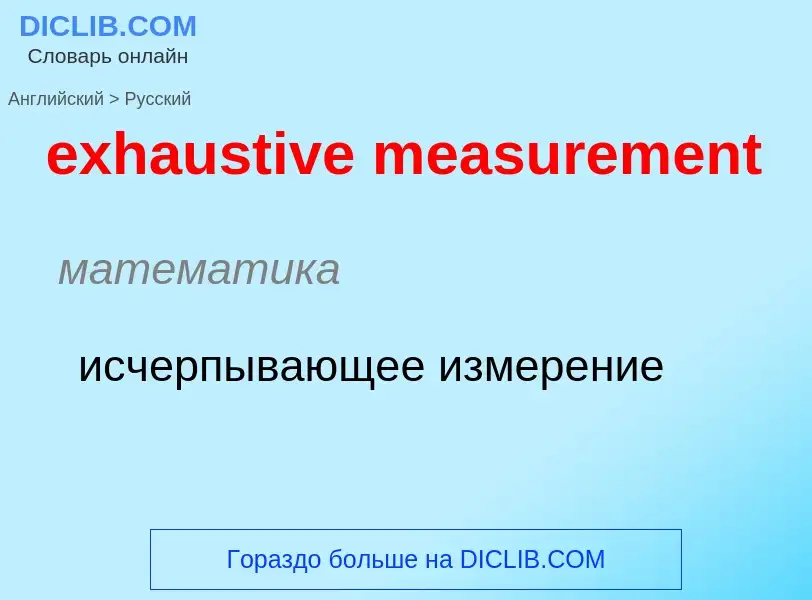Translation and analysis of words by ChatGPT artificial intelligence
On this page you can get a detailed analysis of a word or phrase, produced by the best artificial intelligence technology to date:
- how the word is used
- frequency of use
- it is used more often in oral or written speech
- word translation options
- usage examples (several phrases with translation)
- etymology
exhaustive measurement - translation to russian
математика
исчерпывающее измерение
общая лексика
погрешность измерения
Definition
Wikipedia
In probability theory and logic, a set of events is jointly or collectively exhaustive if at least one of the events must occur. For example, when rolling a six-sided die, the events 1, 2, 3, 4, 5, and 6 balls of a single outcome are collectively exhaustive, because they encompass the entire range of possible outcomes.
Another way to describe collectively exhaustive events is that their union must cover all the events within the entire sample space. For example, events A and B are said to be collectively exhaustive if
where S is the sample space.
Compare this to the concept of a set of mutually exclusive events. In such a set no more than one event can occur at a given time. (In some forms of mutual exclusion only one event can ever occur.) The set of all possible die rolls is both mutually exclusive and collectively exhaustive (i.e., "MECE"). The events 1 and 6 are mutually exclusive but not collectively exhaustive. The events "even" (2,4 or 6) and "not-6" (1,2,3,4, or 5) are also collectively exhaustive but not mutually exclusive. In some forms of mutual exclusion only one event can ever occur, whether collectively exhaustive or not. For example, tossing a particular biscuit for a group of several dogs cannot be repeated, no matter which dog snaps it up.
One example of an event that is both collectively exhaustive and mutually exclusive is tossing a coin. The outcome must be either heads or tails, or p (heads or tails) = 1, so the outcomes are collectively exhaustive. When heads occurs, tails can't occur, or p (heads and tails) = 0, so the outcomes are also mutually exclusive.
Another example of events being collectively exhaustive and mutually exclusive at same time are, event "even" (2,4 or 6) and event "odd" (1,3 or 5) in a random experiment of rolling a six-sided die. These both events are mutually exclusive because even and odd outcome can never occur at same time. The union of both "even" and "odd" events give sample space of rolling the die, hence are collectively exhaustive.

